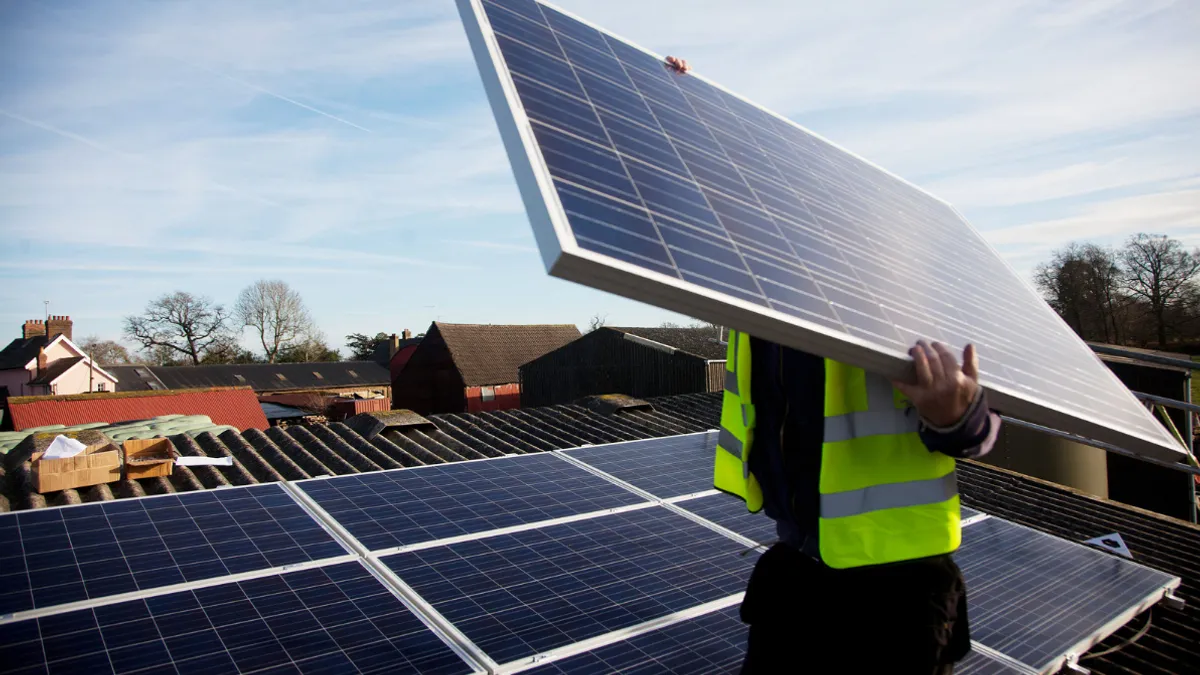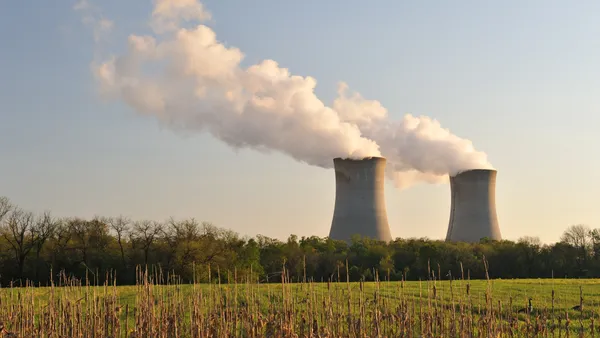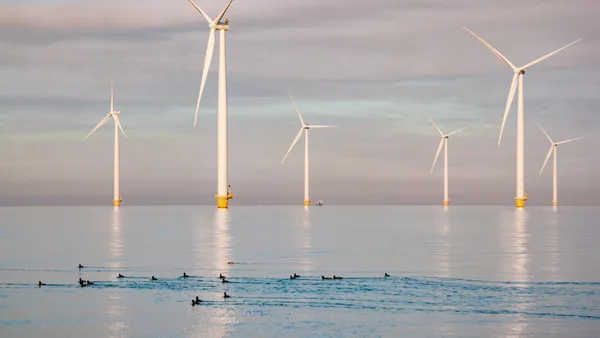Dive Brief:
- Thin film developer First Solar filed a statement with the U.S. International Trade Commission Tuesday night in support of Suniva and SolarWorld's quest for import relief from imported solar equipment, but stopped short of offering up a solution.
- First Solar, a member of the Solar Energy Industries Association (SEIA), urged the ITC to "reject the notion that the [U.S. crystalline silicon photovoltaic cells] industry must be left to die so that the downstream solar industry may live." Company CEO Mark Widmar wrote that he believes the commission "can design an effective remedy that allows solar demand to flourish."
- First Solar is one of the few solar developers that stands to benefit if Suniva and SolarWorld's remedy proposals are approved. The company said it manufactured crystalline silicon photovoltaic (CSPV) cells until 2016, when the hefty competition from imports shifted its focus to thin cells.
Dive Insight:
Until Tuesday, Arizona-based First Solar now had not directly commented on the contentious hearings at the ITC to impose trade protections for domestic solar manufacturers.
A member of SEIA, which opposes the tariff petition, the company said its past experience as a CSPV manufacturer could shed light on potential remedies.
In its statement, First Solar noted incurred operating losses of $502.59 million in 2016, the same year it decided to exit the CSPV manufacturing business in favor of the more "cost effective" thin film modules in development.
"We believe this approach is necessary to remain competitive, but it forced us to eliminate approximately 400 manufacturing jobs in our [Perrysburg, Ohio] facility," and an additional 200 non-manufacturing jobs throughout the nation, Widmar noted. The company also has facilities in Malaysia and Vietnam.
Had the company not stopped the CSPV manufacturing, "it would have been much worst for First Solar," Widmar wrote. He pinned the blame on massive production overcapacity in Asia, as well as the fact that producers are not subject to the same market and capital constraints as domestic manufacturers.
Widmar also expressed disappointment in SEIA's actions over the fate of the CSPV industry.
"For years, CSPV import prices have been anything but rational," he wrote. "We have been disappointed that some parties, including the Solar Energy Industries Association, of which we are a member, have not engaged constructively on this issue."
"U.S. CSPV producers will not get the breathing space they need unless CSPV import prices rise to rational levels and this overcapacity is addressed," Widmar wrote.
Suniva petitioned the ITC for import relief earlier this year, after filing for bankruptcy. SolarWorld later joined after its German parent filed for insolvency; the solar developer had three years previous requested anti-dumping tariffs on imported solar equipment from China and Taiwan.
The companies proposed a $0.25/watt tariff for solar cells that would drop to $0.235/watt over a four-year span. For solar modules, they proposed declining tariffs starting at $0.32/watt and falling to $0.29/watt in the same timeframe.
Additionally, Suniva proposed a declining floor price of $0.74/watt for solar modules that falls to $0.64/watt. SolarWorld requested quotas of 0.22 GW on imported cells and 5.7 GW on imported modules in 2018, which would also ratchet down over four years.
Tesla, another major company that remained quiet throughout the proceedings, filed a brief against the petitioners on Wednesday. The company is planning to produce solar cells and modules at its gigafactory in Buffalo, New York, and would benefit if the petitioners' proposals were approved.
But Tesla aligned with SEIA's concerns over the broader market impact, and noted "any import restrictions arising from this proceeding could negatively impact Tesla’s U.S. production plans."
Ed Fenster, a board member and co-founder of residential solar installer Sunrun (also a SEIA member) questioned First Solar's concerns over the imports.
"If First Solar really believed imports were injurious to American workers, they would support tariffs on imported thin-film panels, not just CSPV panels," Fenster said in a statement to Utility Dive.
SEIA President Abby Hopper described First Solar's claims about the group's participation as "demonstably false."
"While we disagreed with the ITC ruling in favor of the Petitioners’ regarding injury, we nevertheless proposed a creative and constructive way to support the CSPV manufacturing industry in the United States that would benefit the Petitioners," Hopper said in a statement.
First Solar and Tesla's statements follow a unanimous ruling this month that found imported solar equipment caused injury to domestic manufacturers, moving the case into the remedy phase. After consideration of trade proposals, the ITC will issue recommendations to President Trump by mid-November.
The president may be predisposed to favor the solar petition. Earlier this year, the president was reported to have told his staff "I want tariffs, and I want someone to bring me tariffs" without referring to a specific industry.
SEIA and its allies hope to counteract the president's protectionist leanings. Earlier this week, Axios reported the trade group took out ads Trump's favorite shows, like Fox & Friends, in order to sway him not to impose the petitioner's proposed remedies.
The post has been updated to reflect additional information about Tesla's stance against the petition, in addition to SEIA's and Sunrun's comments.












